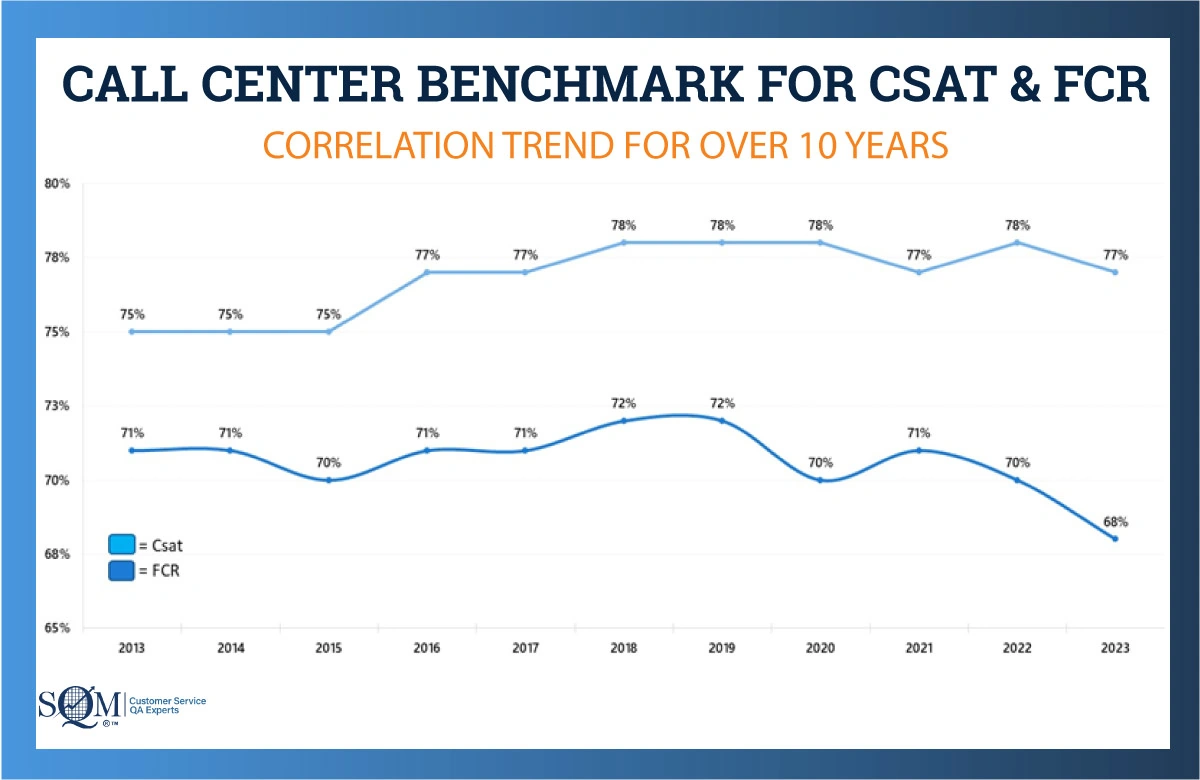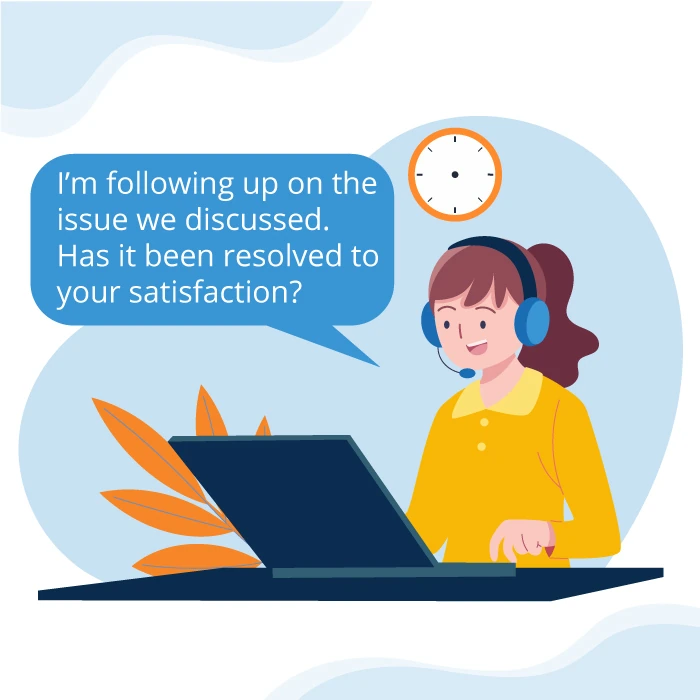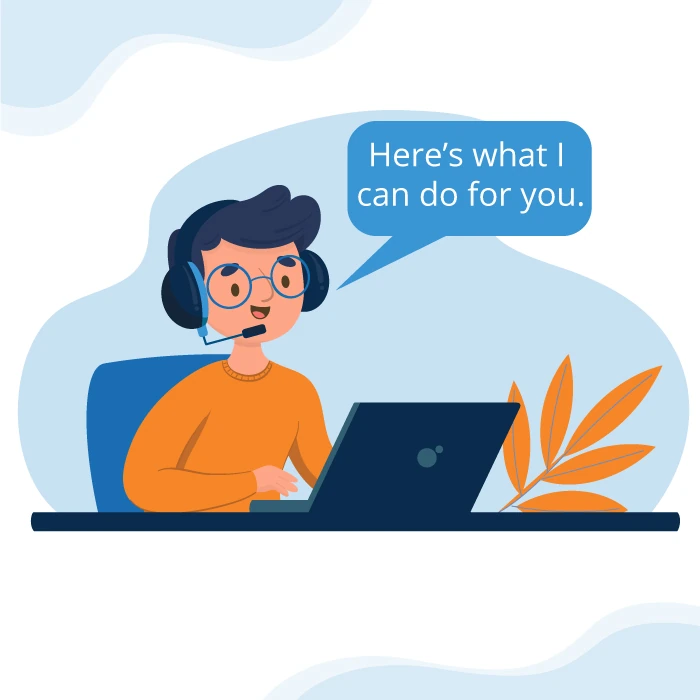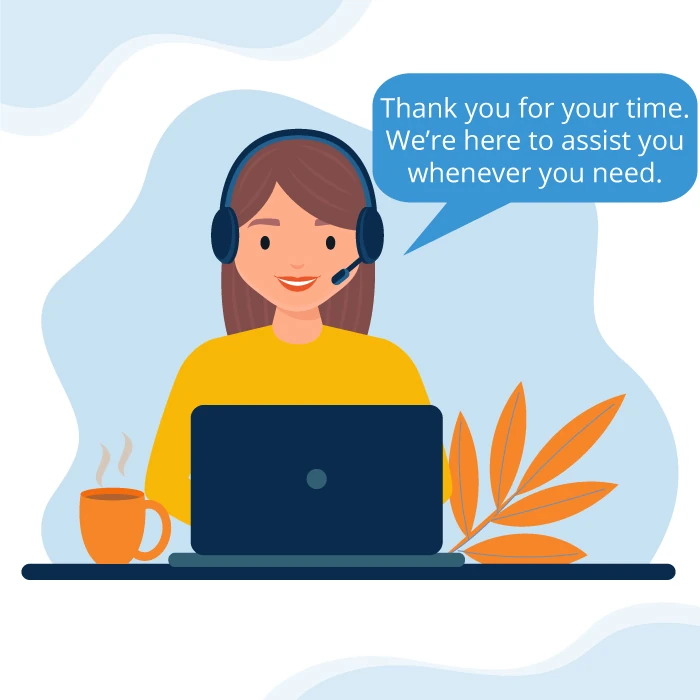A call center agent's ability to manage customer interactions effectively can make or break a customer's experience, directly impacting loyalty and satisfaction. While advanced technologies and tools have their place in enhancing call center efficiency, the true differentiator often lies in the daily habits and practices of the agents themselves.
But what exactly separates top-performing call center agents from the rest? It's not just about having the right scripts or being quick on your feet—though those are important. The key to sustained success lies in adopting actionable habits that enhance communication, problem-solving, and overall customer interaction.
This blog will explore 20 essential habits that call center agents can integrate into their daily routines. These habits are not only easy to implement but also highly effective in boosting performance, ensuring that every customer leaves the interaction feeling heard, valued, and satisfied.
Whether you're a seasoned professional or new to the call center environment, these strategies will help you elevate your performance and deliver exceptional customer service consistently.
1. Start the Day with a Review of Key Product Updates
Spend 5-10 minutes each morning reviewing any new product features, service updates, or common issues that have emerged.
Staying up-to-date ensures that agents provide accurate and current information, reducing errors and increasing customer trust. This habit also helps agents answer questions more confidently, leading to quicker resolutions.
2. Use the Customer's Name Frequently
To personalize the interaction, incorporate the customer's name whenever it makes sense during the call (e.g., greeting, conversation, and closing). However, do not overdo it, as it can come across as unnatural and awkward.
Personalizing the interaction by using the customer's name helps build rapport and makes the customer feel valued. This can lead to a more positive customer experience, improving customer satisfaction scores.

3. Take Brief Notes During the Call
Jot down key points while speaking with a customer to ensure you address all their concerns without missing any details.
Taking notes helps ensure no details are missed, leading to more accurate and complete responses. It also allows agents to keep track of the conversation, reducing the need for customers to repeat themselves.
4. Use the 5-Second Pause
After the customer speaks, pause for a few seconds before responding. This helps ensure that they've finished speaking and gives you time to formulate a thoughtful response.
This pause ensures that the customer has finished their thought and prevents interruptions. It also gives the agent a moment to process the information and formulate a thoughtful response, leading to better communication.
5. Summarize the Customer's Concern
After they explain their issue, paraphrase their problem back to them to confirm understanding.
Summarizing the concern shows the customer that the agent is actively listening and ensures that there's no miscommunication. This step can help promptly address the right issue, leading to quicker resolutions.
6. Set a Daily Learning Goal
Dedicate 15 minutes daily to learning something new about the company's products, services, or best practices in customer service.
Continuous learning keeps agents sharp and well-informed. It empowers them to handle a wider range of issues independently, improving first-call resolution rates.
7. Practice Breathing Techniques
Before taking calls, practice deep breathing exercises to maintain calmness and reduce stress.
Deep breathing reduces stress and helps maintain composure, especially during difficult calls. This habit can improve focus, patience, and the overall quality of customer interactions.

8. Smile While Talking
Smile during calls—it naturally enhances your tone of voice and makes interactions more pleasant.
In the call center industry, we focus so much on what we say to customers. We write scripts, teach language best practices, and memorize empathy statements. But did you know that verbal language accounts for only 7% of how one is perceived? That means that non-verbal cues such as tone of voice and body language make up 93% of people's opinions of you.
Smiling influences your tone of voice, making it sound more pleasant and friendly. This can create a more positive customer experience, leading to higher satisfaction and better rapport.
9. Set a Personal Performance Benchmark
Track your average call time, resolution rate, or customer satisfaction score weekly, and set a target to improve by a small percentage each month.
Monitoring and setting goals for personal performance motivates agents to strive for continuous improvement. It creates a sense of accountability and encourages agents to develop their skills proactively.
mySQM™ QA Software is the gold standard for benchmarking. Benchmarking and ranking CX and QA data is captured and reported in real-time through mySQM™ Customer Service QA software and available at the agent to the SVP level.
Many agents and call centers improve their FCR and Csat performance by up to 10% when benchmarking and ranking performance. SQM benchmarks agents, managers, and call centers using metrics such as FCR, Csat, NPS®, and mySQM™ QA Score. Additionally, SQM certifies agents who have delivered world-class CX performance.

Contact Us for a Benchmark Demo
A senior SQM consultant will share an example of the benchmark report, which includes methodology, your performance for KPIs and metrics, benchmark comparison, and targeted opportunities for improvement. In addition, you will have the opportunity to get a free trial with mySQM™ Customer Service QA Software using your own data.
10. Ask Open-Ended Questions
Use questions like "Can you tell me more about that?" or "How can I assist further?" to encourage customers to share detailed information.
Open-ended questions encourage customers to provide more detailed information, helping agents understand the issue more fully. This can lead to more accurate problem-solving and better customer satisfaction.
The number one thing that is the most important to customers is resolving the call reason on the first call. Therefore, a crucial question to ask the customer near the end of the call is: "Have I resolved the reason for your call today?" The customer is the judge as to whether the agent has effectively resolved their inquiry or problem.
11. Use Call Scripts as Guides, Not Rules
Customize the script based on the conversation's flow to make interactions more natural and responsive.
While scripts are helpful for consistency, tailoring conversations to the customer's specific needs makes interactions feel more genuine and responsive. This flexibility can lead to more effective communication and better outcomes.
12. Follow Up on Difficult Calls
If a call was particularly challenging, set a reminder to follow up with the customer later to ensure their issue was resolved to their satisfaction.
Following up shows that the agent is committed to resolving the issue and values the customer's experience. This can turn a potentially negative experience into a positive one and build customer loyalty.

13. Take Micro-Breaks Between Calls
After each call, take a 30-second break to stretch or take a few deep breaths before the next one to stay fresh and focused.
Micro-breaks help prevent burnout and maintain high levels of energy and focus throughout the day. They can improve overall performance and reduce the likelihood of errors caused by fatigue.
14. Reflect on Challenging Calls
Spend a few minutes at the end of each day analyzing a challenging call. Identify what went well and what could be improved.
Reflection allows agents to learn from difficult situations and apply those lessons to future interactions. This continuous improvement process can lead to better handling of similar situations in the future.
15. Practice Self-Feedback
Record and listen to your own calls once a week to identify areas for improvement in tone, pacing, and problem-solving.
Self-feedback helps agents become more aware of their communication style and identify areas for improvement. This self-awareness is crucial for developing more effective and customer-friendly communication habits.
16. Use Positive Language
Replace negative phrases like "I can't do that" with more positive alternatives like "What I can do is…"
Positive language reduces potential conflict and makes customers feel more understood and appreciated. It also opens up possibilities for solutions, leading to a more constructive conversation.

17. Track Customer Complaints
Maintain a personal log of common complaints or issues raised by customers and review it regularly to spot patterns and prepare better responses.
By tracking complaints, agents can identify patterns and recurring issues, allowing them to prepare better responses and potentially prevent the same problems from recurring. This can lead to faster resolutions and fewer repeat calls.
18. Visualize Success
Before starting your shift, take a moment to visualize a successful day—this can help set a positive tone and boost confidence.
Visualization sets a positive tone for the day and can boost confidence and motivation. It helps agents approach their work with a proactive and solution-oriented mindset, improving overall performance.
19. Limit Distractions
Keep your workspace clear of distractions like personal phones or unrelated websites to maintain focus during calls.
A distraction-free environment allows agents to focus fully on each call, improving attention to detail and reducing the likelihood of mistakes. It also helps maintain a professional demeanor throughout the workday.
20. End Each Call on a Positive Note
Always close the call by thanking the customer for their time and expressing a willingness to help them in the future.
Ending on a positive note leaves the customer with a good impression, even if the issue wasn't fully resolved during the call. This can improve customer satisfaction and increase the likelihood of repeat business or positive feedback.

